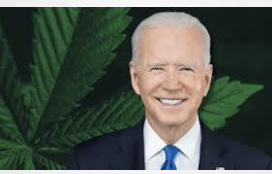An Albany lawmaker has proposed a bill to make it easier for transgender and non-binary business people to participate in the emerging adult-use cannabis industry.
The measure, introduced last month in the State Senate, comes on the heels of historic and progressive legislation passed earlier this spring to legalize marijuana. The law sets aside 50% of cannabis licenses for cultivators, processors, distributors and dispensaries, aimed at minority applicants, women, distressed farmers and veterans.
The Marijuana Regulation and Taxation Act was intended in part to help mitigate the legacy of the War on Drugs. Black and brown men have been disproportionately arrested for marijuana possession, a pattern that continues today, with Black and Hispanic New Yorkers receiving more than 90% of all marijuana summonses in 2020, while white New Yorkers comprised just 3%.
The new law lists minority-owned businesses as ‘social and economic equity applicants,’ a designation that allows Black and brown New Yorkers a chance at participating in the cannabis industry by having access to licenses.
However, Sen. Jeremy Cooney, a Democrat who represents Rochester, said gender minorities should also benefit from the cannabis market.
“It’s really about righting a social wrong,” said Cooney, “and creating an equitable opportunity for all New Yorkers to participate in this new adult-use recreational market.”
The legislation he sponsored argues that “every New Yorker deserves the right to express and identify their gender as they choose.”
He said the current law would force transgender and non-binary applicants to have to choose between their gender identity and the category that would give them access to an economic benefit.
Manhattan Assemblymember Daniel O’Donnell, a Democrat, is expected to introduce a measure similar to Cooney’s this week, according to his aides.
Cooney said projections for the state’s cannabis market range from $2 to $7 billion annually. According to Bloomberg News, one industry analyst foresees “New York likely surpassing Canada and becoming the world’s second-largest legal market after California.”
Given the potential size, Cooney said different communities stand to benefit economically.
“My general belief is that there’s going to be room for everyone at the table,” he said.
Advocates who fought for decriminalization of marijuana, however, wanted to make sure people from Black and brown communities didn’t lose out on possible opportunities, said Melissa Moore, Director of Civil Systems Reform at the Drug Policy Alliance, a non-profit group that advocates for the decriminalization of drugs.
The goal was “to be able to have those folks who have the expertise, who are from the impacted communities, be able to transition into the licensed” market, without being driven out by larger, more well-funded commercial operators, Moore said.
Some people who fought for racial equity in the licensing process worry that efforts at racial equity aren’t watered down by the addition of other categories.
“Here’s the reality that we live in the United States of America in the 21st century: race matters,” said Bertha Lewis, a community activist and founder of The Black Institute.
She pointed to what she saw as the shortcomings of an existing state initiative aimed at Minority and Women Owned Business Enterprises, or MWBEs that compete for government contracts.
“One of the problems with MWBE is that white women get the advantage” over non-white applicants vying for contracts, said Lewis.
Her concerns are borne out by MWBE data. A report by the Nassau County Comptroller found that white female business owners were the biggest benefactor of the MWBE program in that county. And the Buffalo News reported that in Erie County, from 2011 to 2015, “firms owned by white women won 56% of the $475 million in work” when minorities and women were lumped together.
Lewis doesn’t dismiss Cooney’s concerns. She said transgender and non-binary people are often “overlooked.” She proposed a specific category for transgender and non-binary applicants of color, to ensure that they have access to cannabis licenses.
“I am concerned about people of color actually participating in this,” she said.

















